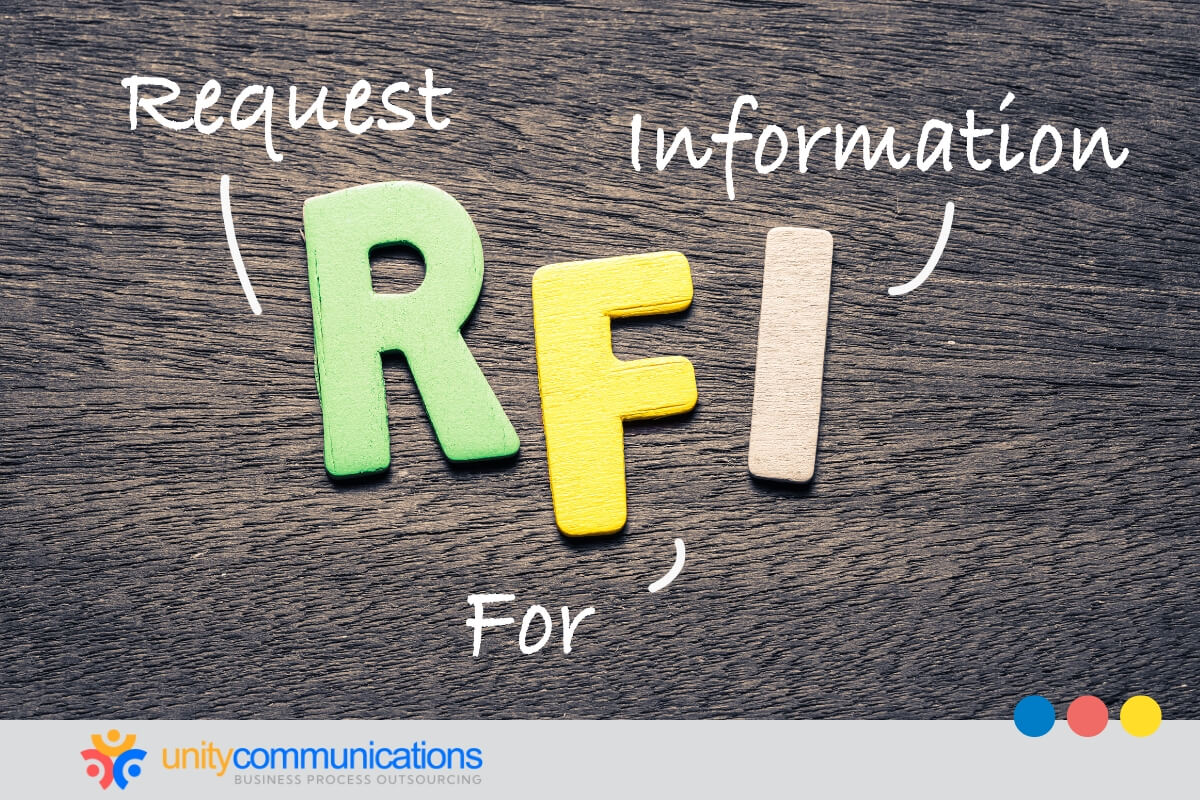IN THIS ARTICLE
Table of Contents
Outsourcing has become indispensable for organizations aiming to streamline operations and enhance efficiency. Outsourcing non-core functions offers significant strategic advantages. However, the success of these partnerships hinges on selecting the proper business process outsourcing (BPO) vendor.
Partnering with a vendor that meets your business requirements ensures strategic alignment and operational synergy. Additionally, selecting a BPO partner based on robust criteria improves service quality, cuts costs, and mitigates risks effectively.
This guide explores essential BPO vendor selection criteria and best practices to empower businesses to make informed decisions that drive sustainable growth and operational excellence.
Let’s dive in.
Why choosing the right BPO vendor is crucial

What is BPO’s role in a company’s success? Outsourcing involves delegating non-core business functions to third-party vendors with onshore, nearshore, and offshore services. Typically, outsourced roles include customer service, information technology (IT) assistance, and sales support.
Partnering with the right BPO vendor to manage your business processes is vital for the following reasons:
- Strategic alignment. Choosing the right vendor aligns your outsourcing strategy with your business goals. Focusing on core competencies while outsourcing non-core functions improves efficiency and builds a competitive edge.
- Lower operating costs. One primary reason for picking a suitable BPO organization is to reduce costs. Selecting the right vendor ensures high-quality products or services at competitive prices, enhancing financial performance.
- Enhanced service quality. The service quality of your BPO partner directly affects customer satisfaction. A vendor with robust processes and a commitment to quality can boost your company’s reputation and customer loyalty.
- Better risk management. Outsourcing introduces financial, operational, and reputational risks. Acquiring a reputable and reliable service provider mitigates these potential issues, which is crucial in effective vendor management for business continuity.
- Accessible specialized skills. BPO companies excel in niche areas such as data analytics, digital marketing, regulatory compliance, service delivery improvement, and operational excellence.
- Scalable functions. A reputable third-party provider offers scalability to adjust operations based on business needs, adapting swiftly to market changes or seasonal demands.
- Technological advancements. Leading outsourcing firms invest in the latest tools and infrastructure, which are unavailable to many businesses. Thus, they foster innovation, efficiency, and competitiveness.
- Global reach and market expansion. BPO providers with international presence expand the business to new markets. They offer local insights, language support, and cultural understanding for smoother overseas operations.
Comprehensive vendor selection criteria for BPO
Check the following BPO vendor selection criteria to identify a suitable partner.
Business requirement alignment
The first step in selecting a BPO vendor is to verify that the vendor’s offerings align with your business requirements. This process involves:
- Understanding specific needs. Clearly define what you need from the BPO vendor. Whether it’s customer service, data entry, or IT support, knowing your exact requirements narrows the list of potential vendors.
- Matching capabilities. Assess whether the vendor has the necessary capabilities to meet your specific needs. Check their expertise, technology infrastructure, and ability to customize solutions.
Service delivery
High-quality service delivery is critical when outsourcing business processes. Primary factors to consider include:
- Consistency and reliability. The vendor should have a proven track record of delivering consistent and reliable services. Gauge its capability through client testimonials and case studies.
- Performance metrics. Evaluate the vendor’s performance metrics and service-level agreements (SLAs) to ensure they meet your standards for service delivery.
Financial stability
A vendor’s financial stability is an essential BPO vendor selection criterion for successful long-term partnerships. It supports continuous, reliable service delivery and reduces the risk of operational disruptions.
Consider the following:
- Financial health. Review the vendor’s audited financial statements and credit ratings to assess their health. A financially stable vendor is more likely to provide uninterrupted services. Look for consistent revenue growth, positive cash flow, and manageable debt levels. The ideal credit score is 700 and above.
- Investment capacity. Determine if the vendor can invest in new technologies and innovations to enhance service quality. Review their capital expenditure and research and development (R&D) budgets in the financial statements. Usually, it accounts for 10% to 20% of the gross profit.
Customer service
Effective customer service is essential for a smooth outsourcing relationship. It enhances clear communication, timely issue resolution, and collaborative partnership.
Evaluate vendors’ customer service capabilities by checking their:
- Support infrastructure. Assess the availability and responsiveness of their customer support. Prospects must have dedicated account managers and 24/7 support services.
- Client feedback. Seek feedback from the vendors’ current and past clients to understand their experience with their customer service.
Product or service requirements
The vendor must meet your specific product or service requirements to integrate its services seamlessly into your operations. This includes:
- Technical specifications. Ensure the vendor can deliver the technical requirements needed for your operations. These include robust IT infrastructure, software compatibility, data security measures, and specialized technical expertise.
- Compliance and standards. Verify that the vendor follows industry standards and regulatory requirements relevant to your business. Examples are International Organization for Standardization (ISO) certifications and General Data Protection Regulation (GDPR) compliance.
Product or service quality
Maintaining high service or product quality is crucial for the success of outsourced services. It increases customer satisfaction, protects your brand reputation, and supports long-term business growth.
Consider the following:
- Quality assurance processes. Evaluate the vendor’s quality assurance processes and its commitment to continuous improvement. Review quality management systems, certifications, audit reports, and performance metrics.
- Feedback mechanisms. Ensure the vendor has robust mechanisms for collecting and acting on client feedback to enhance product quality.
Delivery timing
Timely delivery of services or products is one of the BPO vendor selection criteria to consider in order to maintain operational efficiency. It contributes to uninterrupted business operations, helps meet deadlines, and maintains overall operational efficiency.
Key considerations include:
- Delivery schedules. Review the vendor’s delivery schedules to determine whether they can meet your deadlines.
- Flexibility. Assess the vendor’s ability to adapt to changes in delivery timing as per your business needs. Examine their flexibility in contract terms and review their past performance and numbers when handling schedule changes and resource allocation.
Vendor selection process: Best practices

Examine the following best practices for the vendor selection process:
Draft a request for information (RFI)
The RFI process is the first step in gathering information about potential vendors. Best practices include:
- Clear objectives. Define clear objectives for the RFI to ensure you gather relevant information.
- Comprehensive questions. Include questions that cover all critical aspects of the vendor’s capabilities, including their experience, service offerings, and technological expertise.
- Standardized format. Use a standardized format for RFIs to facilitate the comparison of responses.
Generate a request for proposal (RFP)
The RFP process involves soliciting formal proposals from short-listed vendors. Best practices include:
- Detailed requirements. Clearly articulate your product or service requirements in the RFP document, including delivery timing and performance criteria.
- Thorough evaluation criteria. Establish clear evaluation criteria for vendor proposals, including technical capabilities, cost, service delivery quality, and financial stability.
- Interactive process. During the RFP stage, engage in an interactive process with vendors. Conduct vendor presentations, ask for clarifications, and hold discussions to understand their proposals better.
Select vendors
Once you have gathered and evaluated RFP responses, the next step is selecting vendors. Best practices include:
- Scoring system. Use a scoring system to evaluate vendors based on your established criteria. This helps in making an objective decision.
- Site visits. If possible, visit the vendor’s facilities to gain firsthand insights into their operations and infrastructure.
- Reference checks. Contact references provided by the vendor to verify claims and gather additional insights into its performance.
Evaluate potential vendors
Evaluating potential vendors involves a detailed assessment of their proposals and capabilities. Key considerations include:
- Technical expertise. Assess the vendor’s technical knowledge and ability to deliver the required services.
- Reputation and references. Review the vendor’s reputation and client references to understand their reliability and performance.
- Cultural fit. To enhance collaboration and service integration, determine the potential partner’s cultural fit. Assess their organizational values, communication style, and work ethics. Conduct site visits, employee interviews, and pilot projects to observe compatibility in real-world interactions.
Emphasize service delivery
Ensuring high-quality service delivery is essential for a successful BPO partnership. Best practices include:
- Continuous improvement. Encourage a culture of constant improvement within the vendor’s organization.
- Feedback mechanisms. Implement robust feedback mechanisms to gather input from stakeholders and end users.
Prioritize delivery timing
Timely delivery of services or products is critical for maintaining operational efficiency. Best practices include:
- Timelines. Set realistic delivery timelines in consultation with the vendor.
- Tracking. Use project management tools to monitor and track delivery timelines.
- Contingency planning. Develop contingency plans to address potential delays or disruptions.
Focus on customer service
Excellent customer service is a cornerstone of a successful BPO partnership. Best practices include:
- Dedicated support. Ensure the vendor provides dedicated support resources, including account managers and customer service representatives.
- Responsive communication. Establish responsive communication channels for addressing issues promptly.
- Customer satisfaction. Regularly measure customer satisfaction through surveys and feedback forms.
Highlight product quality
Maintaining high product quality is essential for the success of the outsourced services. Best practices include:
- Quality assurance processes. The vendor should have robust quality assurance processes in place.
- Compliance with standards. Ensure the vendor complies with relevant industry standards and regulations.
- Monitoring. Implement constant monitoring mechanisms to track product quality.
The bottom line

Choosing the right BPO vendor is necessary for businesses seeking sustainable growth and operational excellence. Outsourcing non-core functions allows companies to focus on core competencies, enhancing efficiency and competitive advantage.
Navigating outsourcing deals requires understanding BPO vendor selection criteria. Following these and the best practices, you can select a service provider that meets your immediate needs and supports your long-term goals.
Let’s connect to learn more about BPO vendor selection criteria and discover how Unity Communications can be the right outsourcing partner for your success!





